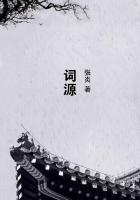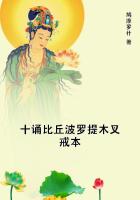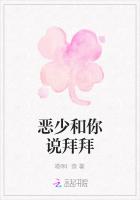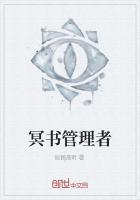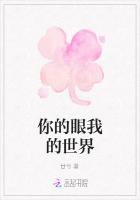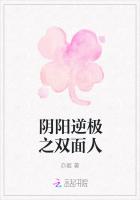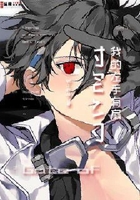"It was his Cornelius Nepos that Master Edward was repeating when he referred to King Mithridates," continued the count, "and you interrupted him in a quotation which proves that his tutor has by no means neglected him, for your son is really advanced for his years.""The fact is, count," answered the mother, agreeably flattered, "he has great aptitude, and learns all that is set before him.He has but one fault, he is somewhat wilful;but really, on referring for the moment to what he said, do you truly believe that Mithridates used these precautions, and that these precautions were efficacious?""I think so, madame, because I myself have made use of them, that I might not be poisoned at Naples, at Palermo, and at Smyrna -- that is to say, on three several occasions when, but for these precautions, I must have lost my life.""And your precautions were successful?"
"Completely so."
"Yes, I remember now your mentioning to me at Perugia something of this sort.""Indeed?" said the count with an air of surprise, remarkably well counterfeited; "I really did not remember.""I inquired of you if poisons acted equally, and with the same effect, on men of the North as on men of the South; and you answered me that the cold and sluggish habits of the North did not present the same aptitude as the rich and energetic temperaments of the natives of the South.""And that is the case," observed Monte Cristo."I have seen Russians devour, without being visibly inconvenienced, vegetable substances which would infallibly have killed a Neapolitan or an Arab.""And you really believe the result would be still more sure with us than in the East, and in the midst of our fogs and rains a man would habituate himself more easily than in a warm latitude to this progressive absorption of poison?""Certainly; it being at the same time perfectly understood that he should have been duly fortified against the poison to which he had not been accustomed.""Yes, I understand that; and how would you habituate yourself, for instance, or rather, how did you habituate yourself to it?""Oh, very easily.Suppose you knew beforehand the poison that would be made use of against you; suppose the poison was, for instance, brucine" --"Brucine is extracted from the false angostura* is it not?"inquired Madame de Villefort.
"Precisely, madame," replied Monte Cristo; "but I perceive Ihave not much to teach you.Allow me to compliment you on your knowledge; such learning is very rare among ladies."* Brucoea ferruginea.
"Oh, I am aware of that," said Madame de Villefort; "but Ihave a passion for the occult sciences, which speak to the imagination like poetry, and are reducible to figures, like an algebraic equation; but go on, I beg of you; what you say interests me to the greatest degree.""Well," replied Monte Cristo "suppose, then, that this poison was brucine, and you were to take a milligramme the first day, two milligrammes the second day, and so on.Well, at the end of ten days you would have taken a centigramme, at the end of twenty days, increasing another milligramme, you would have taken three hundred centigrammes; that is to say, a dose which you would support without inconvenience, and which would be very dangerous for any other person who had not taken the same precautions as yourself.Well, then, at the end of a month, when drinking water from the same carafe, you would kill the person who drank with you, without your perceiving, otherwise than from slight inconvenience, that there was any poisonous substance mingled with this water.""Do you know any other counter-poisons?"
"I do not."
"I have often read, and read again, the history of Mithridates," said Madame de Villefort in a tone of reflection, "and had always considered it a fable.""No, madame, contrary to most history, it is true; but what you tell me, madame, what you inquire of me, is not the result of a chance query, for two years ago you asked me the same questions, and said then, that for a very long time this history of Mithridates had occupied your mind.""True, sir.The two favorite studies of my youth were botany and mineralogy, and subsequently, when I learned that the use of simples frequently explained the whole history of a people, and the entire life of individuals in the East, as flowers betoken and symbolize a love affair, I have regretted that I was not a man, that I might have been a Flamel, a Fontana, or a Cabanis.""And the more, madame," said Monte Cristo, "as the Orientals do not confine themselves, as did Mithridates, to make a cuirass of his poisons, but they also made them a dagger.
Science becomes, in their hands, not only a defensive weapon, but still more frequently an offensive one; the one serves against all their physical sufferings, the other against all their enemies.With opium, belladonna, brucaea, snake-wood, and the cherry-laurel, they put to sleep all who stand in their way.There is not one of those women, Egyptian, Turkish, or Greek, whom here you call `good women,' who do not know how, by means of chemistry, to stupefy a doctor, and in psychology to amaze a confessor.""Really," said Madame de Villefort, whose eyes sparkled with strange fire at this conversation.

